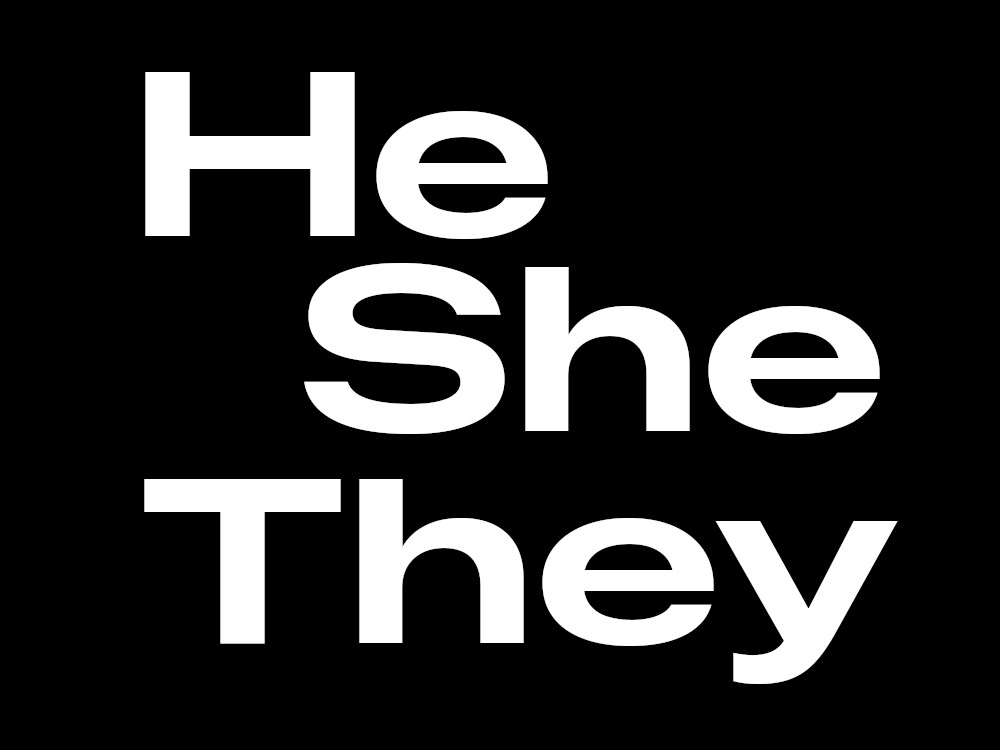An Obadiah Slope column
50 shades of they: The chief sub-editor is the person who rules on grammar in a newspaper. The Sydney Morning Herald’s chief sub, Michael Ruffles, has written “Mansplaining pronouns for obstinate blokes,” which is alive-and-let-livee argument. Let’s accept[ ‘they” as a pronoun for an individual, he says.
Obadiah suspects that “they” will be accepted over time.Indeedd it has been used in English for centuries.
If somebody cuts in front of you while you are driving, you would probably say, “they cut me off,” if you did not see the driver well enough to take a stab at their gender.
“There’s not a man I meet but doth salute me,
As if I were their well-acquainted friend,” Shakespeare has Antipholos spout in the Comedy of Errors.
They/them as singular pronouns are part of our language.
Antipholos goes on to remark, “and everyone doth call me by my name,” which is possibly the way out for people who want to avoid transgender pronouns. Obadiah won’t replay that controversy: The Sydney Anglican guidelines (page 254 of here) are Shakespearean in following Antipholos and suggest using someone’s preferred name but avoiding pronouns. They seem to be mostly deal with spoken conversations. (The guideles are attached to a doctrinal statement that can be described as compassionent conservative.)
But as a writer, Obadiah does not have a problem with preferred pronouns, which are hard to avoid in writing. In the first usage, a form of words like “who identifies as gender-queer” avoids the criticism raised by some social conservatives of cover-up or endorsement.
It is interesting that Chief Sub Ruffles does not mention newly invented pronouns. They may struggle.
But Obadiah is upset with one comment in the Chief Subs piece. Let Obadiahh quote a slab: “That comic book origin story of Adam and Eve and the ribs? That’s another example of we men putting ourselves first, and history is littered with them. It’s the patriarchy at work maintaining the narrative of men’s primacy, and you’ve got to admit, gents, it’s worked pretty well for us.”
Why engage in mockery of one group (conservative Christians) when you are engaging in a plea for us all to treat another group, transgender or non-binary people, with respect? Oh well, time to turn the other cheek.
###
AI sermons: Sooner or later, any preacher who posts their talks online will run the risk of someone, maybe a prankster in their congregation, putting up artificial intelligence generated versions of them.
AI Jesus is on Twitter, a “neural network” trained using the King James Bible to speak like Jesus. Amost.
Maybe preachers don’t have to worry, yet.
But on the other hand, MereOthodoxy reports, “At a fête for one of evangelicalism’s largest, online media outfits, a colleague shared how he asked GPT-3, a language AI, what the Bible says about transgenderism. The AI produced a cogent theological explanation with Biblical citations. A senior editor for the media org responded portentously, “If AI can write that, I’m about to be permanently out of a job.”
A popular AI program ChatGPT was asked by blogger Nathan Campbell to come up with Bible based church names. It came up with “Empower” Church, “Resurrection” Church, “Radiance” Church, “Victory” Church etc. Which only proves the system is Pentecostal!
Seriously, Nathan gives a great overview of AI and church.
###
Best read: What is the most important book of the last 25 years? Commentator David French has nominated the instant classic Bowling Alone: The Collapse and Revival of American Community, by Robert Putnam (2001) As “the most important and prescient book” of the last quarter century,
“Putnam accurately perceived the terrible cost to both covic and physical health, in the decline of civic associations in American life.”French told his email audience. What books would you nominate?
###
Not bowling alone: Putnam and maybe french are right. But because this column is quirky, Obadiah would like to point out that he has begun bowling with others. Un-alone. Your columnist turns up each week to encourage a group of people living with an intellectual disability at a weekly ten-pin bowling session. It’s part of a disability sports club that has been an important part of Obadiah’s family life. He goes just to talk, cheer, and be friendly.
And yes, Obadiah is a far worse bowler than most of them.
###
Obadiah’s former boss at the Bible Society, Greg Clarke, asked on Linked In why there seems to be so many ads in the physical paper. Why do people still advertise in print? Is this model still sustainable? Here’s what Obadiah thinks: “There’s a couple of trends. Print advertising in the weekend editions is rebounding, but minus the classifieds “rivers of gold” of old. (Once when I redesigned the classified, a small type adjustment could cost millions of dollars in revenue.) Some key advertisers have found that physical ads work well. Hello Harvey Norman.
“But the emerging model is subscriptions, with the New York Times successfully replacing its old print base with the new model of online subscribers. But this challenges “local” providers as the NYT, Guardian, Daily Mail seek global audiences. The legacy tiles have seen off a generation of online rivals like BuzzFeed, and the Huffington Post.
“The recruitment of Christian conservative David French to the NYT represents a response to the latest challenger, substack. The old mastheads may be smart enough to pick off the better writers.”


Alongside “Bowling Alone”, I’d recommend Disconnected by Dr Andrew Leigh. He worked under Putnam and Disconnected is the Australian version of Putnams book.